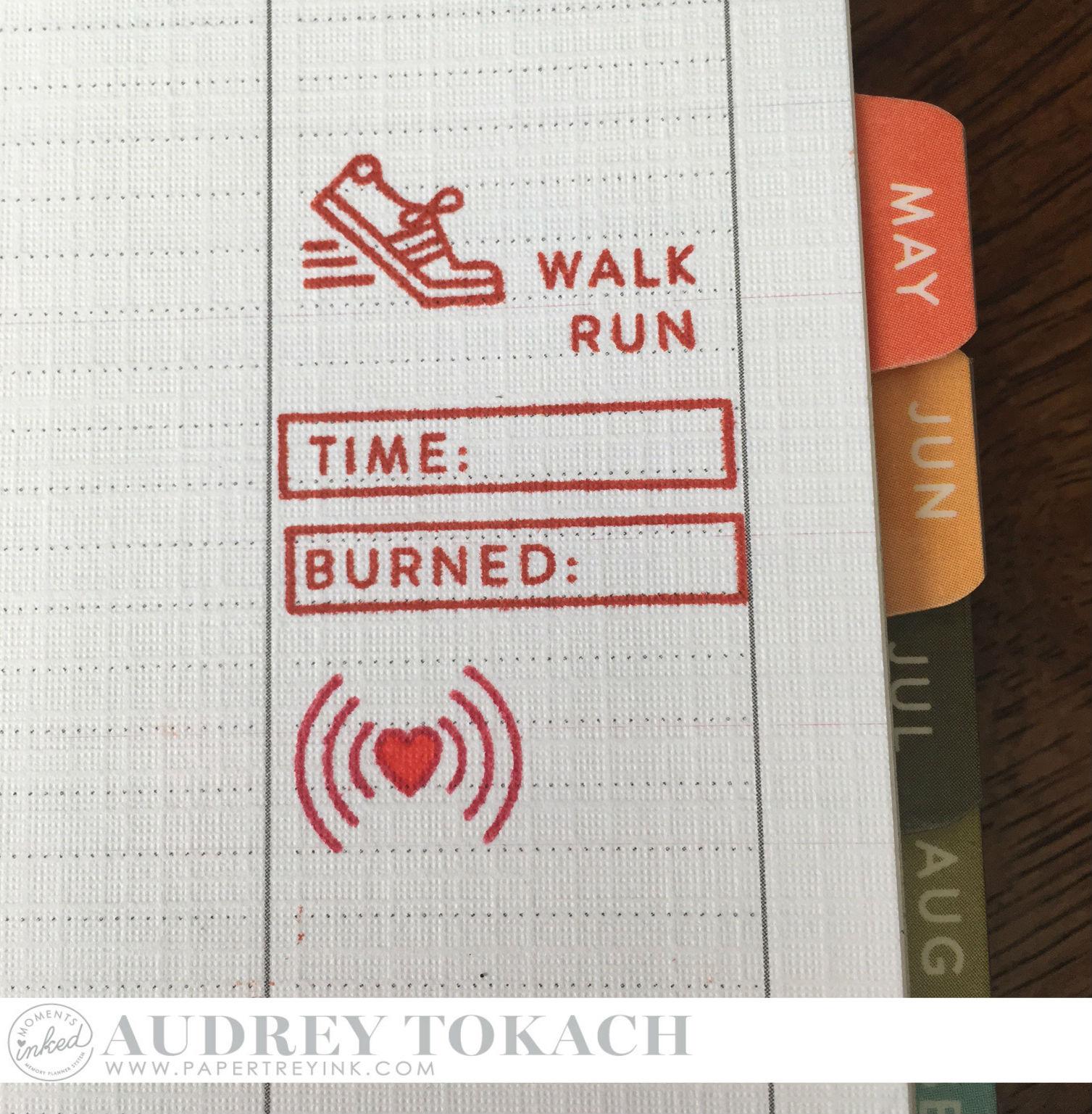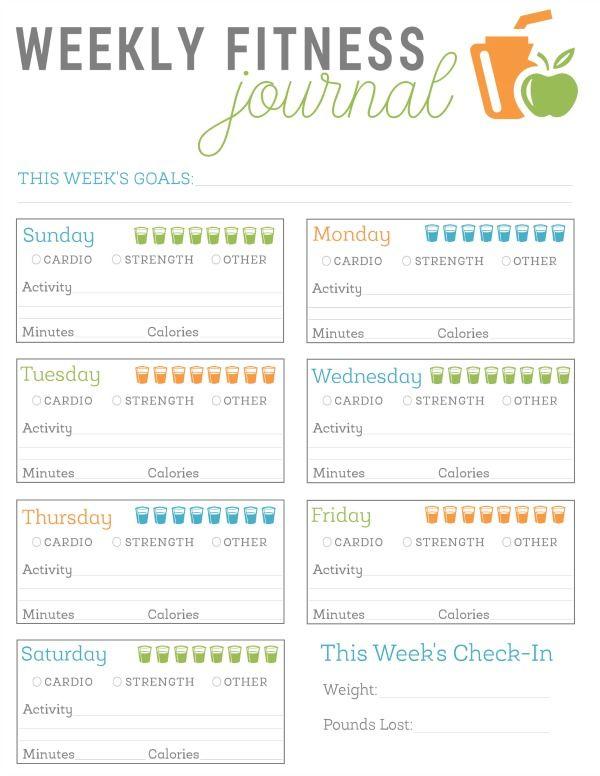In today’s fast-paced world, maintaining a healthy lifestyle can often feel like a daunting challenge. With countless responsibilities tugging at your time and attention, it’s easy to let personal fitness goals slip through the cracks. Yet, amidst the chaos, there lies a simple yet profoundly effective tool that can help you stay on track and motivated: a fitness journal. More than just a log of your workouts, a fitness journal is a personal companion on your wellness journey, offering insights into your progress, helping you set realistic goals, and fostering a deeper connection with your body and mind. In this article, we’ll explore the myriad benefits of keeping a fitness journal, providing you with practical tips and empathetic guidance to help you harness its full potential. Whether you’re a seasoned athlete or just beginning your fitness adventure, a fitness journal can be your steadfast ally, guiding you toward a healthier, more fulfilled life.
Understanding Your Fitness Journey with Empathy
Embarking on a fitness journey is a deeply personal experience, and understanding it with empathy can transform how you approach your goals. A fitness journal serves as a compassionate companion, allowing you to document your progress, reflect on your experiences, and adjust your plans with kindness towards yourself. When you jot down your daily workouts, meals, and thoughts, you create a narrative that is uniquely yours. This narrative can provide insights into patterns and habits, helping you to nurture your strengths and address areas that may need more attention.
- Self-awareness: Tracking your physical and emotional responses to different workouts can help you better understand what your body needs.
- Motivation: Seeing your progress over time, no matter how small, can be incredibly motivating and reassuring.
- Accountability: A journal acts as a commitment to yourself, encouraging consistency and discipline.
- Empathy: Reflecting on your challenges and achievements fosters self-compassion and patience.
| Element | Purpose |
|---|---|
| Daily Log | Tracks workouts, meals, and mood |
| Weekly Reflection | Identifies patterns and progress |
| Goal Setting | Defines short-term and long-term objectives |
Approaching your fitness journey with empathy means recognizing that every step, whether forward or backward, is a valuable part of the process. Embrace your journal as a tool for growth, understanding, and self-love, and let it guide you with a gentle hand towards your fitness aspirations.

Tracking Progress for Tangible Results
When it comes to achieving your fitness goals, consistency is key. A fitness journal acts as a mirror reflecting your journey, helping you to see both your achievements and areas for improvement. By diligently recording your workouts, meals, and personal reflections, you create a roadmap that guides you towards tangible results. Tracking your progress allows you to identify patterns and adjust your routines to better suit your needs.
Consider incorporating the following elements into your journal for a comprehensive overview:
- Workout Details: Document exercises, sets, reps, and weights to track your strength and endurance gains.
- Nutritional Intake: Log meals and snacks to ensure balanced nutrition and identify any dietary adjustments needed.
- Personal Reflections: Note how you feel physically and mentally after workouts to monitor your well-being and motivation levels.
| Week | Goal | Progress |
|---|---|---|
| 1 | Run 5km | Completed 4.5km |
| 2 | Increase Bench Press by 10% | Achieved 8% increase |
| 3 | Eat 5 servings of vegetables daily | 4 days successful |
By regularly updating your fitness journal, you cultivate a habit of mindfulness that extends beyond the gym. This structured approach not only boosts accountability but also enhances your ability to celebrate small victories along the way. Embrace the process, and watch as your dedication transforms into measurable success.

Setting Achievable Goals with Your Journal
One of the most empowering aspects of maintaining a fitness journal is the ability to set goals that are not only ambitious but also realistic. A well-kept journal allows you to break down your ultimate fitness aspirations into manageable milestones, keeping you motivated and on track. Here’s how you can make the most of your journal to set achievable goals:
- Define Your Objectives: Begin by clearly identifying what you want to achieve. Whether it’s running a 5k, losing a certain amount of weight, or simply feeling more energized, having a specific target will give your efforts direction.
- Break It Down: Large goals can feel daunting, but by breaking them into smaller, actionable steps, they become more attainable. For instance, if your goal is to run a marathon, start with setting a goal to run a mile without stopping.
- Track Progress Regularly: Use your journal to monitor your progress. Document your workouts, nutrition, and how you feel each day. This not only provides insight into what works best for you but also helps in adjusting your goals as needed.
To make your goal-setting even more structured, consider using a simple table in your journal:
| Goal | Steps | Timeline | Progress |
|---|---|---|---|
| Run a 5k | Increase distance by 0.5 miles each week | 3 months | 2 miles |
| Lose 10 pounds | Track calories, exercise 4x a week | 2 months | 3 pounds lost |
By setting achievable goals and using your journal as a guide, you create a roadmap to success that is both motivating and rewarding. Remember, the journey is just as important as the destination, and your journal is there to celebrate every step along the way.

Overcoming Challenges with Reflective Practices
- Self-Awareness: Keeping a fitness journal fosters self-awareness, allowing you to identify patterns and recognize areas for improvement. By regularly reflecting on your workouts, dietary habits, and emotional responses, you gain a deeper understanding of what drives your motivation and where your challenges lie.
- Goal Adjustment: Challenges often arise from setting unrealistic goals or underestimating the effort required to achieve them. With reflective practices, you can assess your progress and adjust your goals to be more attainable. This ensures a balance between ambition and reality, reducing frustration and increasing the likelihood of success.
- Mindful Progress: Journaling encourages mindfulness, helping you stay present and focused on the journey rather than fixating on the end result. By acknowledging small victories and learning from setbacks, you cultivate a positive mindset that is crucial for overcoming obstacles.
| Challenge | Reflective Practice Solution |
|---|---|
| Plateau in Performance | Analyze past workouts to identify patterns and modify your routine for variety and improvement. |
| Lack of Motivation | Review journal entries to reconnect with your initial motivations and set new, inspiring goals. |
| Inconsistent Habits | Track daily routines and habits to pinpoint inconsistencies and develop a more structured plan. |
By integrating reflective practices into your fitness journey, you not only enhance your physical capabilities but also nurture your mental resilience. This holistic approach is key to navigating and overcoming the inevitable challenges along the way.








































